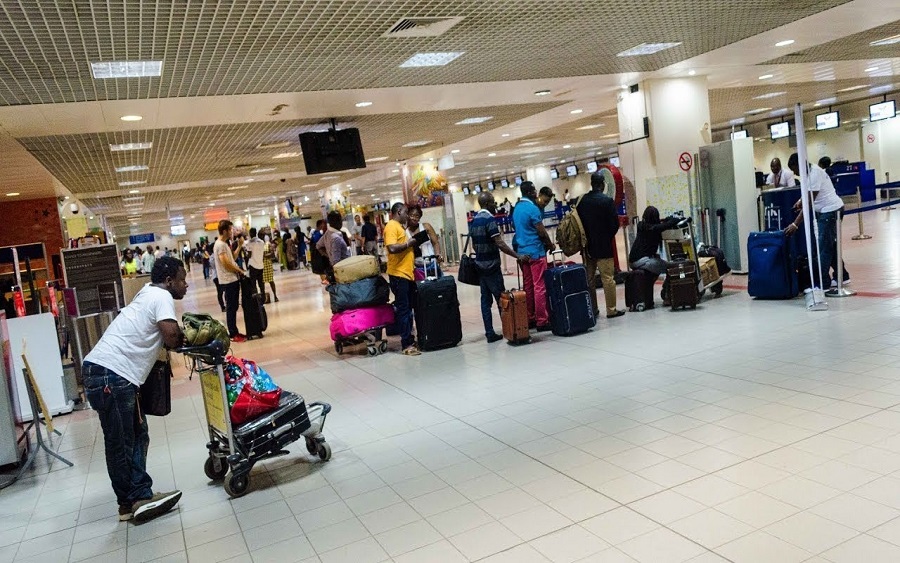For young people in some of the world’s most advanced countries, the career growth trajectory is always in the following order: graduate from school, move to your favourite city, land a dream job, and work towards your promotion. For young Nigerians, however, the reality is completely different. It is not uncommon to come across university graduates who have never been employed for five years. Understandably, this situation makes it extremely difficult to have a decent standard of living.
READ: This report explains why Nigerians are bent on leaving the country
Survival of the fittest
The major problem facing young people in Nigeria has to do with the unavailability of jobs. The Nigerian job market is like an evil forest full of treasures. Everyone is scared of it, yet they must go there in order to survive. Every year, thousands of young people graduate from tertiary institutions and are pushed into a job market that does not have any room for them. With limited resources and competent skills to create their own jobs, they end up competing for the few available vacancies.
READ: Here are reasons Lagos may not reverse Okada ban
Leaving is an expensive option
In a desperate bid to make it in life in Nigeria, many people willingly do anything– legal and illegal. One of the things people do is leave their loved ones behind and travel across seas to foreign lands where they often become strangers. This is called “checking out” for greener pastures. While it is a viable and legal option, emigration is not a cheap option, especially for many Nigerian youths who barely earn enough to sustain their livelihood. Emigration requires a lot of financial planning, consistent saving culture, and even investing.
In this article, we shall be examining some ways some young people are investing to leave. We shall also be examining the business of emigration.
[READ: A look at how young Nigerians invest their money nowadays]
Saving up is the first step
As earlier mentioned, it can be quite costly to emigrate from Nigeria. To this end, you really need a lot of money. While many people struggle to come up with the funding required for their relocation, there remains one good old way to accumulate enough money – just save more and spend less.
READ: Emirates Airline asks workers to embark on compulsory unpaid leave over Coronavirus spread
As one of the millions of young Nigerians who have successfully emigrated from Nigeria in search of greener pastures in Europe, Charles (not his real name), had to rely on his savings as primary funding. Narrating how saving “helped my life,” he said he had to “save aggressively” whilst living frugally for more than three years. Charles first began nursing the idea to travel to Germany in 2015. At this point, he had just completed his studies and was fortunate to get a job in Lagos which paid him a monthly salary of N150,000. Out of this amount, the young man managed to save 70% of his monthly income. It sounds unbelievable, but he did it!
The fact that Charles was intent on his ambition to leave the country helped him to make conscious efforts to save. Another thing that helped him a lot is the fact that he had free accommodation which, coincidentally, was close to where he worked. Eventually, a consistent saving habit helped him to save up over N3 million in the course of three years.
[READ: Pension plan participation among Nigerians increases]
Why is emigration so expensive?
There are people who have given up on the idea of traveling to greener pastures after realising how much they have to spend in the process. But then, nothing good comes easy in life. There are reasons why emigration is expensive. I’ll briefly break down the expenses below;
- An average of N30,000 is needed to acquire an international passport, just in case you do not already have one.
- You will need to spend an average of N200,000 to write either IELTS, TOEFL or GRE exams. In the same vein, you will need money to register for preparatory classes ahead of your examination(s).
- For visa application, let’s budget an average of N100,000. Visa applications vary, depending on where and for what purpose you are traveling.
- Assuming you are traveling for education (which is the avenue most young Nigerians use), you may have to spend about N50,000 on admission application fees.
- Now, you will have to travel from your base to either Abuja or Lagos for embassy interviews. Depending on whether you are flying, travelling in a bus, or walking, you will definitely spend money commensurately. So, put that into consideration.
- If all things work out and your visa is granted, you will need to spend money for air travel. The distance between Nigeria and your destination is too far, so you couldn’t possibly trek it. Budget about N300,000 for this just in case.
- Here is the important part – you will need to have enough for sustenance when you get to your destination; until you start working and making money. This is where the rest of your savings becomes very useful.
- At the end of the day, you may need more than N3 million to finance your emigration.
READ: PayPal, Square make top 10 list of most valuable U.S banks
1. TOEFL practice test with explanations:
a. https://t.co/0hjbwGjPSt
b. https://t.co/7zr2Hepc7v2. Everything about TOEFL: https://t.co/Qh5OFQt3SN
3. IELTS materials including Cambridge practice tests 1-14: https://t.co/nseNa1pnBP
BONUS: https://t.co/XRlTtNEdjx
— Peter Agboola (@baba_Omoloro) August 10, 2019
[READ: Foreign Airlines’ ticket sales rise by 21% in 2018]
Making more money ahead of emigration
Saving over time is a very good thing to do; however, inflation has a wicked way of messing up the value of your money and frustrating your plans eventually. Nonso (not his real name) knew this very well when he was planning to leave Nigeria. As a matter of fact, this was shortly before Nigeria’s recent recession, between 2015 and mid 2018, which messed up the economy. So, to avoid the tragedy that inflation could cause, the young man did something most people do not always consider doing – converted most of his money to dollars.
READ: FirstBank issues disclaimer against Azimo Money Transfer
“I was already earning some monthly income in dollars due to a scholarship I was on. So, considering how the value of the naira was fluctuating at the time, I thought to myself that it would be nice to hold on to the dollars as they come in instead of converting them to naira. Soon, I had converted the rest of the money already in my account to dollars. With hindsight, I think it was quite a risky thing to do, keeping all those dollar bills in my room. But then again, the cash wasn’t even as numerous as it would have been if I was keeping the money in naira. I just had to learn to hide them properly.”
READ: Turkish Airlines tells staff to expect 55% pay cut in April

[READ: See the best Nigerian mobile banking apps in H1 2019]
The plan worked for him and before long, he was buying and selling dollars, depending on market demand. Once again, this was between 2015 and 2017, especially when the exchange rate of the naira to the dollar was quite much. In the end, not only was Nonso able to preserve the value of his money, he was also able to earn extra money in the process which facilitated his emigration.
READ: World richest man, Jeff Bezos holds 5% of his wealth in cash
Borrowing to emigrate
Some young people also borrow money from their relatives to put temporarily in their bank accounts, just as one’s account statement is one of the things officials at the embassy consider prior to either granting a visa or refusing to. So, how this works, as explained by Maryam (not her real name), is that someone’s relatives and friends would transfer money into the person’s account in order to make it up to a reasonable amount. The money would come in at different times and stay there over time. And then after the traveler has successfully flown abroad, he or she can then refund the money to everyone he or she got it from.
In conclusion, emigrating from Nigeria can, most times, be a game changer for anybody’s career. This is because there are more job opportunities out there for Nigerians, compared to the ones they would ever have access to back home. This is why more Nigerians keep striving to leave. They will keep striving to leave, so long as the economic situation in the country remains as bleak as it is today. Unfortunately, Nigeria keeps losing its brightest minds and most agile labour force to other countries.
[READ: Between loan and equity funding, which is best for startups?]












I absolutely do miss Emmanuel on Nairametrics.
Sir how can I have interest in growing my business today in Nigeria?